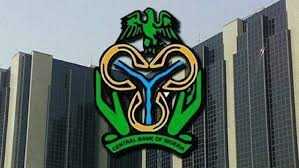The Central Bank of Nigeria (CBN) has released a draft framework aimed at modernising anti-money laundering (AML) practices across the country’s financial sector by adopting intelligent, automated solutions powered by artificial intelligence (AI) and machine learning (ML). The proposed standards are intended to strengthen the country’s financial integrity in response to the growing digitalisation of transactions and the increasing complexity of financial crimes.
In a circular dated May 20, 2025, and sent to all regulated financial institutions, the apex bank outlined baseline expectations for deploying automated AML systems. The circular, referenced BSD/DIR/CON/AML/018/033, signals a shift toward more advanced compliance tools capable of detecting suspicious activity with greater accuracy and speed.
The CBN stated that the framework is designed to align Nigeria’s financial system with global best practices, particularly those outlined by the Financial Action Task Force (FATF). Stakeholders are invited to submit comments on the draft by June 13, 2025, after which the final standards will be issued. Once adopted, financial institutions will have 12 months to achieve full compliance.
The standards apply broadly to deposit money banks, microfinance institutions, mortgage banks, digital payment service providers, and other entities under the CBN’s AML regulatory oversight. Key components of the framework include system functionality, real-time monitoring, risk-based customer profiling, and seamless integration with national identity databases.
Under the proposed rules, financial institutions will be required to implement intelligent AML systems that can monitor transactions in real time, detect anomalies, and conduct behavioural analysis. These systems must incorporate AI/ML-driven pattern recognition, risk scoring, and adaptive learning to flag unusual activities, including large cash movements, cross-border payments, and cryptocurrency transactions.
The systems must also interface smoothly with core banking platforms, onboarding systems, and transaction processors. They are expected to feature real-time dashboards for trend analysis, case tracking, and regulatory reporting, with scalability and configurability to suit the institution’s specific transaction volumes and risk exposure.
Customer due diligence and Know-Your-Customer (KYC) protocols are central to the draft. Institutions must maintain verified, real-time identity data and integrate their systems with Nigeria’s Bank Verification Number (BVN) and National Identification Number (NIN) databases. Continuous risk profiling and behavioural reclassification are mandated, including enhanced due diligence for high-risk individuals or entities.
The framework further requires institutions to screen customers against domestic and international watchlists, including those for sanctions and politically exposed persons (PEPs). The systems must support fuzzy matching to detect name variations and prevent potential evasion. Adverse media monitoring, internal watchlists, and automatic updates of third-party lists are also required.
A major emphasis is placed on case management. Institutions must adopt enterprise systems that automate the assignment, tracking, and resolution of flagged transactions. Role-based workflows and audit trails are required for regulatory oversight, along with automated submission of Suspicious Transaction Reports (STRs), Currency Transaction Reports (CTRs), and Foreign Currency Transaction Reports to the Nigerian Financial Intelligence Unit (NFIU).
Cybersecurity is a critical pillar of the new standards. Institutions must ensure that their AML systems encrypt data both in transit and at rest, restrict access using multi-factor authentication, and provide only role-specific access to sensitive features. Detailed audit logs must be maintained to track user activities and system changes.
For institutions relying on third-party vendors, the CBN is demanding full compliance with its standards. Banks and financial entities must establish detailed service level agreements and hold vendors accountable for their responsibilities under the framework.
To enforce compliance, the CBN will conduct regular inspections and validation checks. Institutions failing to meet the standards within the stipulated 12-month window after issuance will face regulatory sanctions.
Though still in draft form, the framework signals a significant evolution in Nigeria’s approach to financial crime prevention. The CBN’s call for early alignment underscores the urgency for institutions to begin evaluating and upgrading their AML infrastructure now, ahead of formal adoption.
The final framework, once approved, is expected to usher in a new era of technology-driven financial compliance, reduce regulatory breaches, and improve Nigeria’s standing in global financial integrity assessments.










